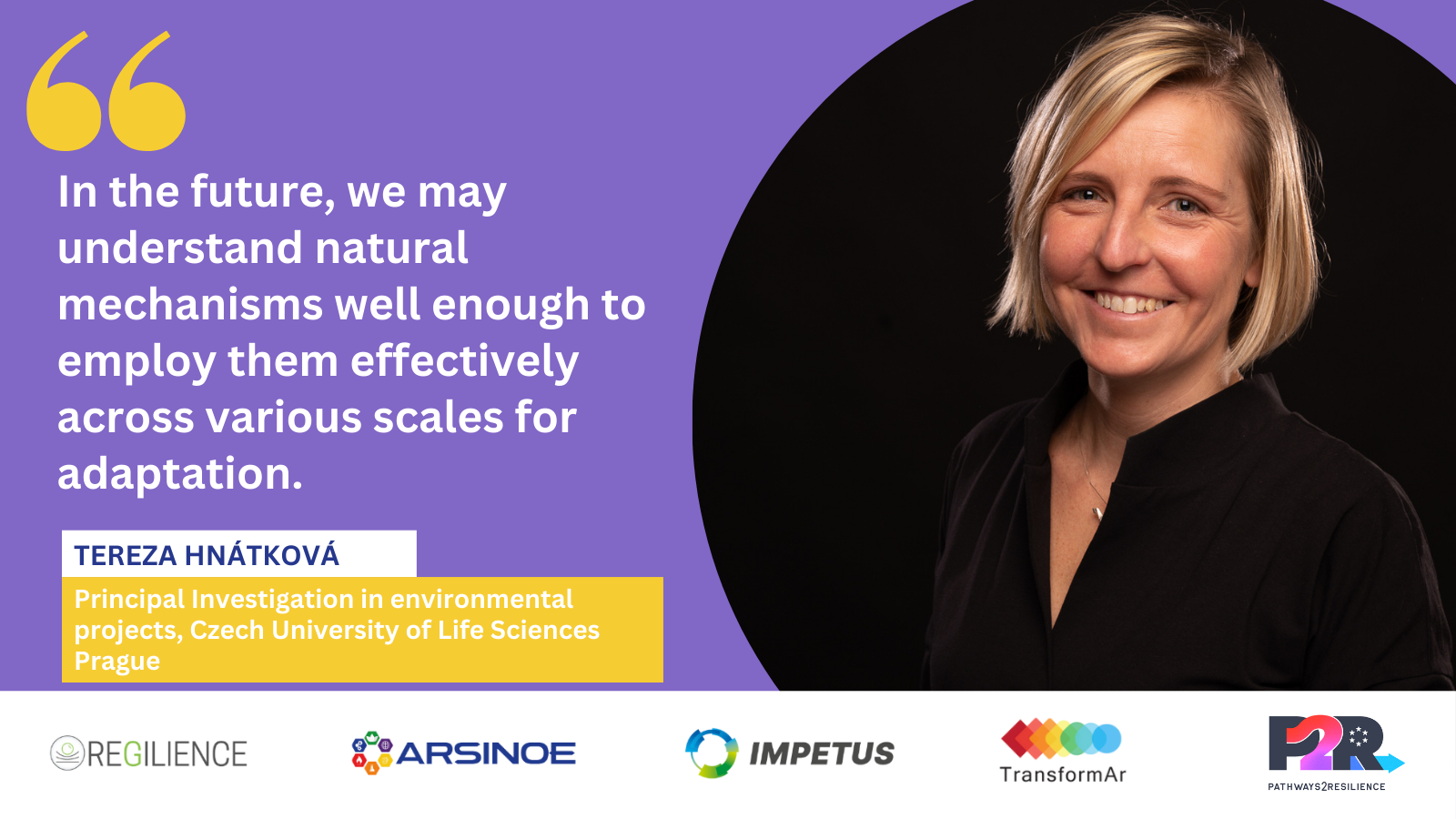March is the month dedicated to celebrating the achievements and contributions of women worldwide. In alignment with this spirit, REGILIENCE, Arsinoe, IMPETUS, TransformAr and Pathways2Resilience have jointly engaged in insightful conversations with inspiring women actively involved in crafting resilience and adaptation solutions to address the inevitable challenges posed by Climate Change. Discover their journey!
How is your expertise and background concretely reflected in your role in the TransformAr project?
As a seasoned professional with extensive experience in both the private sector and academia, my expertise spans from the design, operation, implementation, and monitoring of diverse measures, particularly in the environmental and sustainability sector. My work primarily focuses on specifying outcomes, conducting technical evaluations, and assessing implementation and reproducibility potential. For instance, I’ve been involved in projects related to water management, pollution control, and the implementation of green infrastructure, where my role was crucial in ensuring effective outcomes and the potential for broader application of these measures.
In relation to the TransformAr project, my contributions are about monitoring the progress of solution implementation at the demonstrator scale. My responsibilities include overseeing the installation of monitoring equipment, developing monitoring methodologies, and conducting analyses to assess the environmental impact and effectiveness of Nature-Based Solutions (NBS) and technological and digital solutions. These efforts aim to support transformational climate adaptation by providing a comparative analysis of our approaches against conventional methods, thereby enhancing the project’s impact across all demonstrators.
What are the 3 main drivers that have motivated and still motivate you to contribute in the field of nature-based solutions?
Nature created us, it is not the other way around. In all areas of our life, it’s good to stay humble and listen to the needs of our surroundings – which is a basic principle of sustainability in approaches based on nature-friendly measures. Nature is about an incredibly complex interdisciplinary system, which is a huge challenge to understand (every specific scientific field has its place in this area). In the distant future, it’s possible we’ll grasp all the fundamental mechanisms well enough to employ them effectively across various scales and applications for adaptation, not solely to climate change but also to other challenges. However, it’s crucial to acknowledge that we will remain mere users of these mechanisms, never their creators. Finally, a main driver for me is being able to breathe fresh air, access clean water, and have the opportunity to spend time with loved ones in a space where there are trees, flowers, birds and butterflies.
What is the biggest challenge you faced in your career, notably as a woman your field?
It’s important to remember that even as a strong and intelligent woman, asking for help is not a sign of weakness, but rather a sign of strength. Being sensitive allows work outcomes to incorporate the much-needed perspective of usability and societal acceptance, regardless of how complex or engineering-oriented the solution resulting from our research is.
According to you, what is currently the biggest gap we face to adapt efficiently to climate change?
Human “comfort”. It’s important to realize that if society is to adapt effectively to climate change, it will require a contribution from each of us, and everyone will have to compromise on comfort in some areas of daily life or undertake activities that will demand time and energy.
How do you plan to contribute to reduce this gap, or continue to contribute to make our societies more resilient?
As an educator, I aim to spread awareness and lead by example – the saying by Socrates still holds true: ” Let him who would move the world, first move himself.” My goal is not to change whole word, but to contribute within my capabilities, in the scope and scale in which I can realistically make a difference. Based on 17 years of professional experience and numerous research projects and implementations on an operational scale, I believe it’s important for those who set standards (technical, political, economic, legislative, etc.) to have real, practical experience with what they are deciding on. This requires time, which today’s somewhat hurried society often devotes more to discussions than to getting our hands dirty.




